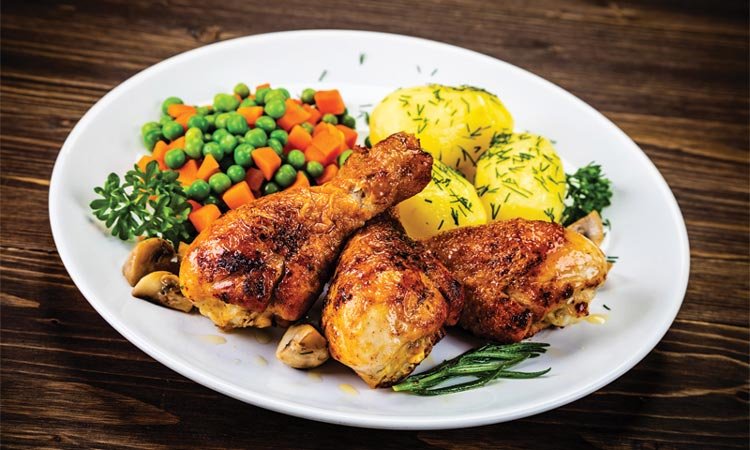I knew a pair of grandparents whose home was furnished with antique armchairs, ornate flower arrangements, and burgundy carpets. Aside from being an experienced homemaker, opera singer and diligent gardener, the petite, elderly woman we affectionately referred to as Grandma was an excellent cook.
One of her favorite dishes to prepare was delicious roast chicken with steamed potatoes, herbs, and garnishes. Grandma had been raised to believe that the chicken leg was the most desirable part of the chicken, yielding the juiciest and most succulent meat. Grandma loved drumsticks, but when she divided the half-chicken she shared with Grandpa, she always gave it to him.
Grandpa, a prominent judge, was quiet by nature, spending most of his day poring over files related to his work and reading from his large library. Each time Grandma served him food, he responded with a quiet “Thank you.”
That is, until one day a few years into their marriage, when he politely asked, “Would it be possible for me to have the other piece this time?” He went on to explain that he actually preferred the white meat.
Grandma was surprised at this request. All this time, she had assumed that the chicken leg was the best part and willingly gave it to Grandpa. In like manner, he had assumed she must prefer the chicken breast and willingly let her have it. Both of them had a good laugh about the incident, and from then on, each of them had their choice piece.
Their marriage lasted for over 50 years, as both of them were committed to living out the following principle: “Do nothing out of selfish ambition—but in humility consider others better than yourselves. Each of you should look not only to your own interests, but also to the interests of others.”1
Honesty and kindness are some of the most important qualities for successful relationships.
- Philippians 2:3–4 NIV ↑
